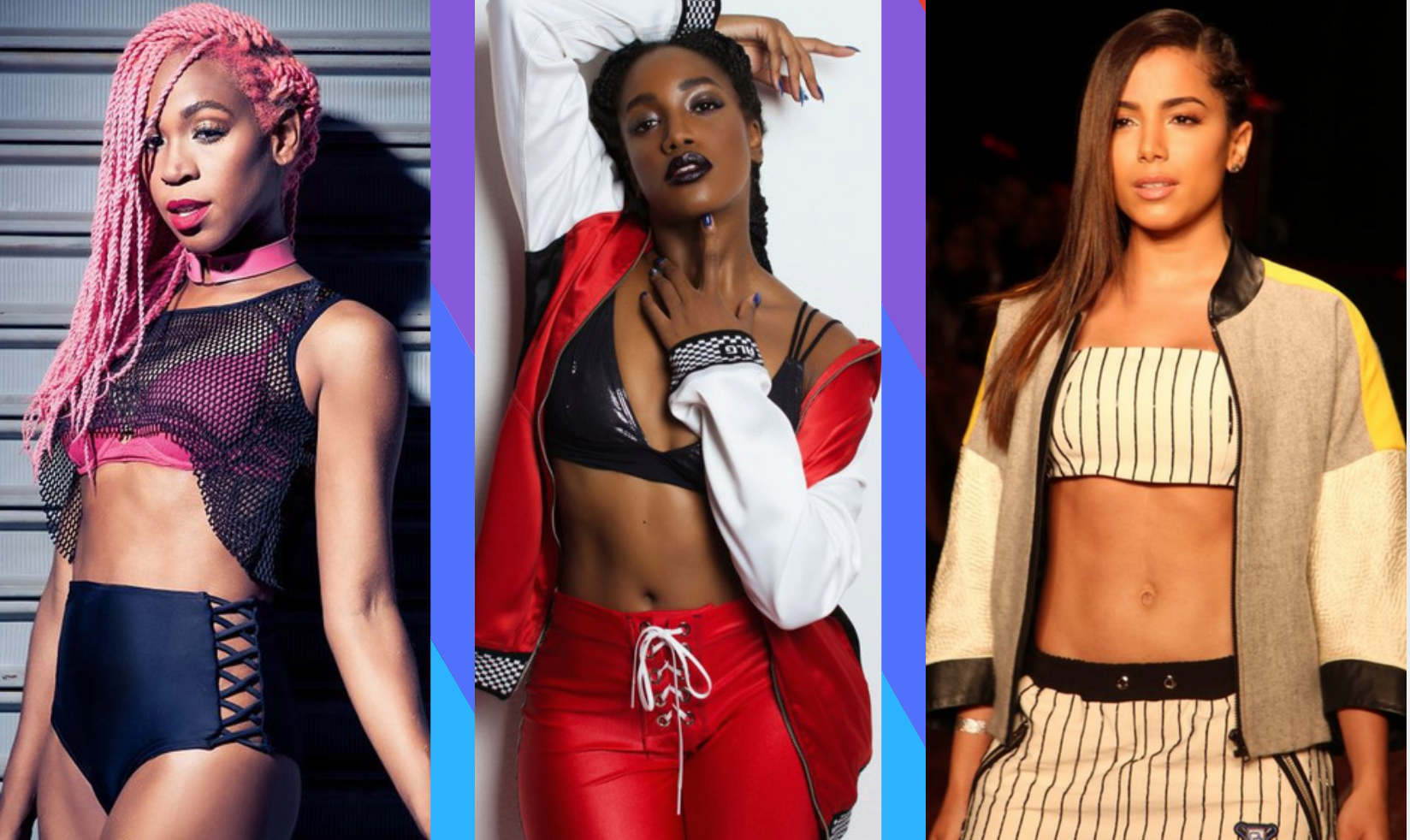Negra, Latina, Feminista

Females all over the globe are taking change into their own hands, as seen with the #metoo movement. Such revolutionary acts of female empowerment are becoming normalized globally by the help of pop culture. For example, Beyonce sings about accepting her racial identity with lyrics such as "I like my negro nose with Jackson Five nostrils." The youth in Brazil are not far behind, as young girls begin to take back ownership of their bodies in a society in which women are afraid to be themselves. Brazil has begun to embrace the black, female, and Latino empowerment movement with their own pop stars. Anitta, a 24-year-old star from Rio de Janiero; Karol Conka, a 31-year-old from Curitiba; and Iza, a 27-year-old from Rio de Janeiro have brought empowering lyrics to a public that has never been addressed in such manner before.
Being a black woman in Brazil means facing daily racism, violence, exclusion, poor living conditions, and fighting daily to secure their spot in society. On average, nine in ten women are afraid of sexual violence in Brazil. There is one rape every 11 minutes, and only 10% of the attacks are reported to the police according to Forum segurança. Out of the reported violence, an overwhelming 58.68% of cases of domestic violence and 65.4% of obstetrical violence are committed against black women. Additionally, the number of femicides has risen 54% in the past few years. Black women have had their voices taken away from them until now.
Anitta, Karol Conka, and Iza are proving to Brazil and to the world that the place of women is whatever place she wants. They have already begun to shape Brazil's media, who for years tried to hide the blackness of a country where 54% of its population is of African descendent. These pop singers are revolutionizing the Brazilian scenario by singing about woman empowerment, equal treatment, and sexual equality. They bring a voice to a group who faces inequality every day of their lives.
Anitta, who has some controversy about her blackness but is clearly from a mixed family, sings strong lyrics showing her powerful sense of identity. "If you do not come, I'll put pressure. I will not wait for you, I'm full of options." are some of her most powerful lyrics, sung in her song Sua Cara. In partnership with Major Lazer and Pabllo Vittar, she had 20 million views on her video clip in less than 24 hours. This woman from the so-called favelas of Rio de Janeiro is the new face of Latino culture globally and continues to encourage women to take action in their lives. Anitta emphasizes that women are in charge and can, even in a misogynist society, say no to abusive relationships and to the male censorship of the female body. Her goal is to create a generation of women who follow their own rules, as "it is better to be single than to be subordinated."
Karol Conka sings about creating a brighter place for women who, like her, overcame obstacles to attain her place in society. She is well known for her performance in the 2016 Olympic ceremony and is one of the most prominent female artists in Brazil. In her song É O Poder she identifies the struggles women endure to make it in a society that represses them: "Whoever said that this was not for me was wrong I created it, lived it, chose it, discovered it, and now I am here." Conka advocates for women in the workplace, for the empowerment of black women, and for women to remain strong and achieve their goals in the face of racism.
At last, Iza is a very new artist who is very sure of what she wants to achieve. In her last interview, she upholds the idea of women supporting each other, saying that "when women sing about repressing other women, about competition, in an enemy context, it just gets worse. I think every artist evolves, and I am evolving, but that's one thing I'll never sing about because it hurts." Her new single Quem Sabe Sou Eu is incredibly feministic, calling for individual strength in the face of male dominance. "I know that my body bothers you. I'm sorry, it's your bad luck. Open your eyes, I'm in trendy. And who tells me what to do is only me, me." This small excerpt of the song shows her dedication towards empowering women, pushing them to be in charge of their lives and to fight against the consistent rape and male dominance culture in Brazil that in so many ways is attached to the "Latino culture patriarchy". Iza tries to make women see each other as sisters and fighters to end this consistent oppression.
Those powerful women are incredible artists. Their work represents not only Latino culture globally but Latino blackness which had been hidden from the media for years. With their work, it is possible to believe that rape culture, racism, and the normalized misogyny in Brazil can change. Anitta, Karol Conka, and Iza are influencing women to stand for themselves in a society which denies them their freedom and individuality. Their fight for the rights of black-Latino women continues to raise the hopes of Brazilians and encourages them to show their own strength in these dark times.





